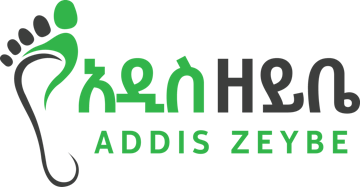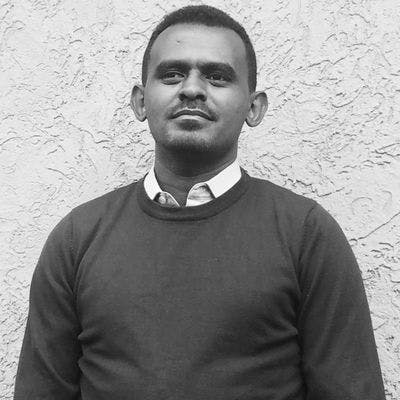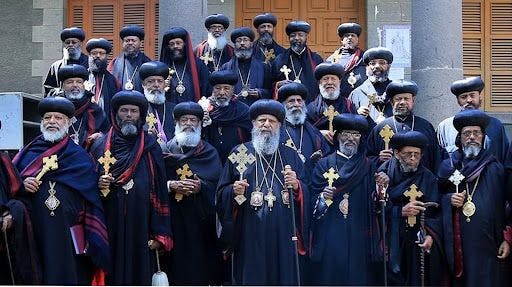Ethiopia, the second most populous nation in Africa, is facing a new and potentially more serious challenge. This comes after a peace agreement was signed, putting an end to the senseless civil war between the Tigray People's Liberation Front (TPLF) forces in the Tigray region and the federal government and its allies. The conflict, which was fuelled by growing ethnic animosity and power struggles, resulted in the deaths of thousands of civilians and the destruction of property, accompanied by the perpetration of war crimes.
The peace agreement is not yet fully implemented, with Tigrayan armed forces still present in certain areas of the Wag-Himra Zone in Amhara region. However, relative peace had seemed to prevail, until recent events shattered the sense of relief.
Recently, tension has shifted from ethnic to religious cleavage, starting with ex-bishops in the Oromia region attempting to establish their separate synod, challenging the authority of the Ethiopian Orthodox Tewahdo Church (EOTC).
The EOTC, one of the Oriental Orthodox churches, is an established institution that commands high levels of legitimacy and is viewed as a source of hope, wisdom, and a provider of social services such as education and health for over 60 million of its faithful followers. The church has had a symbiotic relationship with the state since its adoption as the state religion of Christianity in the fourth century.
However, after the 1974 Revolution, successive Ethiopian governments started to police religious practices instead of supporting them, leading to the repression of religious institutions, interference in administrative, financial, and theological matters, and harassment of religious leaders known for their independence of thought and practice.
The Ethiopian People's Revolutionary Democratic Front (EPRDF), the coalition of ethnic political parties which ruled Ethiopia from 1991 to 2019, orchestrated a leadership change in the EOTC, resulting in a split between two rival synods, one based in Addis Ababa and the other in Washington, DC. Aba Merkorios, the fourth patriarch of the church, was ousted in 1993, and replaced by Abune Paulos.
Another notorious episode of state interference in religious affairs occurred in 2011 when the then-Meles Zenawi regime attempted to impose what it considers a moderate teaching of Islam. The confrontations over this issue led to the death of civilians, and the arrest of the alleged leaders of the ‘Dimstachen Yesema’ (Let Our Voices Be Heard) movement challenging state interference and pleading for the release of the arrested Muslim leaders.
In 2018, Abiy Ahmed, who became the prime minister, received widespread praise for supporting the reconciliation of the rival synods of the EOTC. Abiy was praised for his deed, including by church leaders and ordinary citizens including myself. That was after all a time of euphoria. Abiy-mania, as some have called it.
It is sad to see history repeating itself as a farce with the leader who was praised for supporting the reconciliation of the rival synods now embroiled in a deadly struggle with the unified church synod. The immediate cause of this struggle is the declaration by ex-bishops in the Oromia region to form a regionally independent synod. This is disheartening to see, no doubt. What is more saddening is, though, that this move is aided and abetted by state apparatus, civilian leadership, and Oromia regional armed forces.
The reliance on state violence by the splinter group is in stark contrast to the EOTC Holy Synod's principled stance on challenging state interference in religious affairs in a non-violent manner. This has resulted in violence, with Oromia security forces providing armed assistance to the splinter group and leading to the takeover of church properties and killings of civilians.
Abiy Ahmed has already released an infamous video where he was allegedly mansplaining to his poor cabinet ministers. After watching this video, one cannot help but make connections to Donald Trump’s infamous speech that there are “very fine people on both sides”, after the white nationalist and pro-Nazi protests in Charlottesville, Virginia led to the death of anti-fascist protesters in mid-August 2017.
Similarly, Shimelis Abdisa, the Oromia regional leader under whose complacent watch thousands of civilians (disproportionately Amhara) have been killed and displaced in the country’s most populous region, defended the split.
Oromia security forces have provided armed assistance to the splinter group, in taking over parishes and other church properties. This has led to the killings of civilians. In Shashamane, a small town 225km south of Addis Ababa, more than 30 Orthodox civilians were alleged to be murdered just for protecting their church. In towns around Addis Ababa, a similar trend of the use of disproportionate violence has been witnessed. Some of these violations were reported by the Ethiopian Human Rights Commission itself.
The splinter group’s reliance on state violence as an instrument to assert rights and resources sits in contradistinction with the EOTC Holy Synod’s principled stance on challenging state interference non-violently. The church ordered its followers to a three-day Fast of Nineveh, as did the people of Nineveh of modern-day Iraq in biblical times to repent and ask for forgiveness.
This was accompanied by the wearing of black clothes by the faithful. But these faithful activities were also challenged by the state apparatus, especially within the Addis Ababa city administration, some federal offices, and the Oromia region. As its demands are unheeded, the church leadership made clear its plan to go on peaceful demonstration come Sunday, February 12, 2023. The demonstration has already been called illegal by the disgruntled federal government. At the time of writing, senior church leadership held a meeting with the prime minister but the status of the peaceful rally was unknown.
This whole episode needs us to rethink what we have been doing wrong over the past forty years. The immediate cause of this might be the Oromo ex- clergymen’s decision to go on their own but this is by no means an isolated event.
This comes after years of denigrating the EOTC, its history, and leadership even by state officials, a generational failure to accord the church the place it so deserves, the move towards supplanting secularism as a religion, and the grand failure to come up with a unified vision to the kind of Ethiopia that we want. Successive Ethiopian regimes, from the Derg to Prosperity, have presented the church as a scapegoat, as an adversary.
This episode is unique, however, in so far as the church decided to respond as swiftly as possible in a unified and civil manner. Personally, growing up in other than Gondar, one of the most important cities as far as Ethiopian Orthodox Christianity goes, I always felt uncomfortable with what I consider the church’s overreliance and sometimes legitimization of the repressive regime. Now seeing the church responding to state repression in this manner is a matter of pride.
I have never been more proud of the EOTC leadership than I’m these past two weeks. They have shown us how we need to and can speak the truth to the monster that power is. This is a rare instance of principled civil disobedience, laying foundation for further efforts in redeeming the time.
I sincerely hope that the wisdom of the church leaders and other notable non-Orthodox Ethiopians will lead the monster to reassemble its claws, come to its senses, and stop the use of violence. The government’s handling of the whole situation contradicts the principles of a democratic and just society. All Ethiopians and the international community have a moral obligation to stand in alliance with the EOTC in demanding the Ethiopian government respect the right to freedom of belief and stop interfering in religious affairs.


